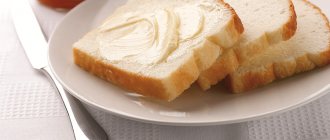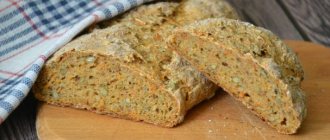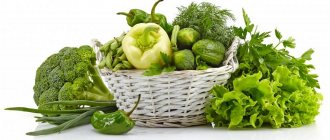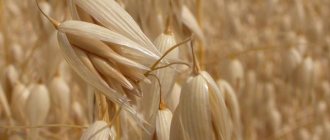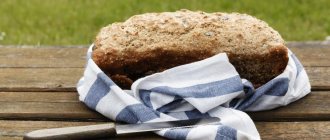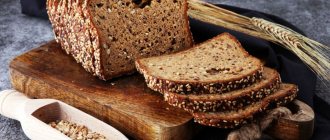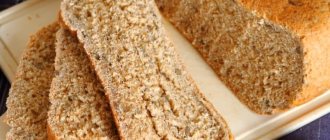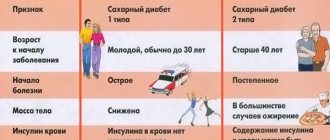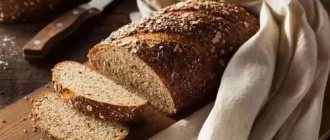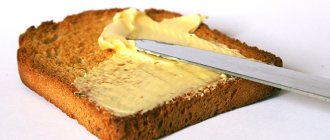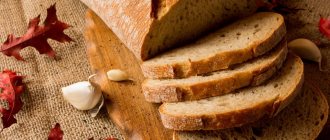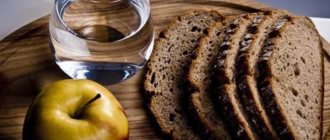134
Amur residents consume approximately a kilogram of bread and bakery products per capita per year - this is 38 kg above the norm recommended by the Ministry of Health of the Russian Federation
“Everyone has their own baking preferences, but whole-grain bread with the addition of bran—particles of the outer layer of grain that is removed during grinding—will bring great benefits. These can be soybean, rye, oat and cellulose fibers. All of these supplements enhance the benefits of fiber, which supports stable digestion and helps cleanse the body of toxins. Fiber is good for everyone, and is especially necessary for people with diseases of the cardiovascular system and diabetics, explained Svetlana Belova. - In simple white bread, useful substances and fiber are practically absent: for its preparation, flour from polished grains is used - without a shell, which contains most of the vitamins and microelements. The less processed the grains, the longer they are digested, supplying the body with substances important for it. For those who control their weight, I would advise them to completely avoid baked goods made from premium flour.
But the inclusion of black bread in the diet (of course, in reasonable doses) even promotes weight loss. Therefore, endocrinologists recommend that their patients eat rye bread, as it helps reduce blood sugar concentrations. It also prevents the development of type II diabetes mellitus. Cornmeal also helps fight insulin resistance by slowing down the absorption of sugars from the intestines.
“Corn bread is allowed if you are intolerant to gluten, since it does not contain it,” noted the region’s chief nutritionist. — Corn grits, from which flour is made, contain antioxidants - lutein and zeaxanthin. Such components inhibit chronic inflammation and neutralize free radicals that can initiate the growth of malignant tumors. They also have a positive effect on the functioning of the visual organs. But if some chronic disease has worsened: pancreatitis, gastritis, stomach or intestinal ulcers, colitis, then temporarily give up bread with bran, as well as Borodino and malt bread. You can eat a little rye-wheat varieties. But not fresh baked goods. Any fresh bread is not suitable for exacerbation of the gastrointestinal tract “chronicle” - only yesterday’s bread. And in case of poisoning, it is better to make and eat crackers. And I would recommend that older people also choose mixed rye-wheat varieties. Because pure rye bread sometimes causes heartburn in older people.
Many people love freshly baked white bread made from premium flour. They can eat half a roll at a time - with milk and sausage. Bloating and gas formation are the mildest consequences of such excess, according to the nutritionist.
— Rotting processes begin in the intestines, which is not at all beneficial to the immune system. Don’t be surprised later that your complexion is unhealthy, your skin has become rough, or a rash has appeared,” says the doctor.
Today, yeast-free bread - sourdough - is in fashion. Some people try to cook it at home.
— The product is useful, but there is one thing. During the fermentation process, fungi of the genus Candida and some harmful bacteria can actively multiply in the sourdough. During pregnancy and breastfeeding, it is better for women to give preference to yeast-free bread, which is baked at a bakery or in a trusted bakery, explains Svetlana Belova.
The chief freelance nutritionist herself also sometimes makes homemade bread - from bran with cottage cheese. And she even shared the recipe with AP readers.
Ingredients: 6 heaped tablespoons of oat bran, 6 tablespoons of wheat bran, 250 grams of cottage cheese, three eggs, 1/3 teaspoon of salt and 1 teaspoon of baking powder (or 2/3 teaspoon of soda slaked with vinegar).
“And this is how I prepare bread,” Svetlana Alexandrovna shared her secret, “I need to grind eggs with cottage cheese, add salt, baking powder, oat and wheat bran.” If desired, you can add your favorite spices and herbs. I knead the dough, make buns and bake for 30-40 minutes at 190 degrees. With boiled chicken and greens for breakfast, the sandwich is wonderful!
Perfect
Any bread goes perfectly with herbs and non-starchy vegetables: cabbage, cucumber, sweet pepper.
Not the best option
Bread with honey or jam.
Bread with potatoes.
Bread with grapes and other sweet fruits.
White bread with fatty foods and meat (it’s better to take some rye bread).
Age category of materials: 18+
- Irina Voroshilova
Is it possible to eat bread while losing weight and what kind?
Weight loss is a long, complex process. The difficulties are associated not so much with dietary restrictions as with psycho-emotional changes. The body experiences serious deprivation, experiences stress, and tries to get rid of it by any means possible.
To help your own body in the difficult struggle with extra pounds, you need to organize the weight loss process in such a way as not to experience discomfort. Correct, gradual and safe weight loss is based on several basic principles:
- Changes in diet. The diet needs to be varied, healthy, and tasty. It must satisfy the body's needs for nutrients (proteins, fats, carbohydrates), vitamins, and minerals.
- Working on eating habits. You can control yourself for a month, eat only the right and healthy foods, but at a certain point you will break down and start eating junk food. However, the new diet should become permanent.
- Adding daily physical activity. This could be home gymnastics, yoga, swimming, walking, running, or gym classes. You need to find something that suits your capabilities and preferences. This will heal the body, make it stronger and more resilient.
The rules seem simple at first glance. But sometimes questions arise. For example, many people who are losing weight are interested in whether it is possible to eat bread on a weight loss diet? If yes, which one is preferable?
Healthy bread: basic properties for the body
Everyone knows that bread is made from cereals. These are wheat, rye, barley, oats, millet, buckwheat, corn, rice. All of these cereals contain a large amount of vitamins, minerals and organic substances necessary for human life.
What does it contain?
Vitamins of group A
. They are natural antioxidants, provide good health, improve mood, and increase concentration.
Vitamins of group E
, helping to improve skin condition and reduce the number of visible wrinkles.
B vitamins
, which support the functioning of the nervous system and help fight stressful conditions.
Niacin (RR)
, responsible for brain function.
Biotin
, necessary for the regulation of all processes occurring in the body.
Kholin
, part of the structure of cells that protect them from destruction.
Micro- and macroelements
: iron, iodine, calcium, magnesium, phosphorus, chromium, selenium, potassium and many others.
Natural carbohydrates
- cellulose and starch.
Bread is a natural, healthy product that can be included in the diet of someone losing weight. There is only one question - which one to choose?
What happens to the body if you don't eat bread?
Everyone has heard the proverb: “Bread is the head of everything.” So, I agree with this. If you choose the right bread, it will bring many benefits to your body.
The flour used for baking bread contains nutrients necessary for our body (fiber, vitamins B, PP, A, E, healthy fatty acids, etc.). The benefits of flour depend on the degree of grinding of the grain. For example, premium flour is the most crushed grains without shell, which is less beneficial for the body. Whole grain flour along with the shell is the most useful. The composition of any bread is flour and water (usually there is also salt, yeast and baking powder). Most often, wheat and rye are used to make bread. Less commonly, flour from spelled, barley, corn, rice, buckwheat, oats, soybeans and bird cherry.
Many people have heard about gluten - it is a protein found in grain crops (especially wheat, rye and oats). It is a fact that many people cannot tolerate this protein. Such individuals experience bloating and abdominal pain, severe weakness and constant fatigue after eating. But if grain crops do not cause allergic reactions in you, it is not advisable to completely give up bread and pasta.
Bread contains great benefits, especially if you choose black and whole grain flour bread. These breads contain a minimal amount of carbohydrates and a lot of plant fiber, which is necessary for proper intestinal function. In addition, there are now technologies that make it possible to saturate bread with various microelements, such as iodine, selenium, etc. If you follow a healthy diet, it is better to reduce the consumption of white bread, since it is oversaturated with fast carbohydrates, which are deposited in fatty tissue.
During the day: you can start the morning with porridge, and at lunch, complementing meat or fish with vegetables, eat a couple of slices of whole grain bread. Ideally, what I personally practice is whole grain crackers.
Different types of bread contain different amounts of nutrients:
- Wheat white bread . Contains a lot of flour and starch. The most favorite and least healthy bread for humans. You can make it healthier by choosing coarse flour with grains of buckwheat, oats, millet, seeds and flax.
- Rye dark bread. It is high in fiber and the proteins are rich in lysine.
- Buckwheat bread . One of the types of gray bread. Contains a large number of amino acids necessary for the body. In addition, it is rich in potassium, phosphorus, iron, zinc, selenium, manganese and magnesium, rutin, antioxidants, vitamins B and E.
- Grain bread . Contains cereal grains. Rich in potassium, sodium, molybdenum, phosphorus, iodine, iron and calcium, vitamins B, A, E, and PP.
- Bread with bran . Unlike others, it contains more fiber, minerals, vitamins, proteins and nicotinic acid.
- Yeast-free bread . Rough, dense bread. Rich in B vitamins, PP and minerals, which are preserved after heat treatment.
- Sprouted grain bread (without flour) . This is gray bread, which is high in dietary fiber, vitamins C and E and thiamine.”
Which one can you eat?
As already mentioned, bread is baked from various cereals. Each type has its own distinctive characteristics. For example, pure wheat, made from premium flour, contains a lower concentration of nutrients than whole grain.
What bread is best to eat when losing weight? The following types are recommended:
- Yeast-free from various types of flour.
- Protein with the addition of eggs, cottage cheese, seeds and nuts. It is characterized by a high content of polyunsaturated fatty acids.
- Whole grain with a low glycemic index.
- Bread made from wholemeal flour, containing fiber necessary for the normal functioning of the gastrointestinal tract.
Now on store shelves you can find a wide variety of breads: with the addition of bran, wheat germ, cereals, and nuts. Every person will be able to find the most delicious and healthy baked goods for themselves.
What you should pay attention to first of all is the calorie content, as well as the content of proteins, fats, and carbohydrates. After all, to lose weight you need to count every day and maintain a deficit.
Black or white
A common dilemma for those losing weight: which bread to choose - black or white? Let's compare them.
| White | Black | |
| Calorie content | 260 | 202 |
| Nutrient content | essential amino acids; carbohydrates: gluten, starch; vitamins of groups B and E; micro-, macroelements, especially magnesium, phosphorus. | essential amino acids; carbohydrates: gluten, starch; vitamins of groups B and E; micro-, macroelements, especially magnesium, phosphorus; fiber, whole fibers. |
| Benefit | It supplies the body with energy, improves blood circulation, and strengthens the cardiovascular system. | Due to the large number of whole fibers, it improves peristalsis and the functioning of the gastrointestinal tract. In addition, it helps improve blood circulation and reduce the level of “bad” cholesterol. |
| Harm | Due to the small amount of whole fibers, it can negatively affect the functioning of the gastrointestinal tract. For the same reason, it gives a feeling of fullness for a short time. | Due to the large amount of fiber, black bread can cause gas formation and flatulence. Compared to wheat, it is absorbed worse. |
A completely healthy person can eat any type of bread, but in moderation. In all other cases, it is recommended to consult a specialist.
Rye
Rye bread is made from a sourdough starter made from coarse rye flour. It contains a sufficiently large amount of nutrients, vitamins and minerals that benefit the body:
- is a source of fiber;
- gives a long-lasting feeling of fullness;
- normalizes hemoglobin levels, recommended for anemia;
- helps eliminate constipation;
- improves the functioning of the gastrointestinal tract.
Rye bread goes well with lean meats, lettuce, mushrooms, and cheese. A good breakfast option is homemade ham and a slice of rye.
Borodinsky
Borodino bread is made from several types of flour, water, salt and yeast. Like other varieties, it is rich in vitamins, minerals and nutritional components that the body needs to function properly. Just like the previous option, it helps improve peristalsis and the functioning of the gastrointestinal tract.
Borodino bread can also be eaten for breakfast with cottage cheese, cheese, fermented milk products and lean meats. The main thing is to strictly maintain the serving size. Experts recommend eating no more than 30-50 grams daily. This is one small slice.
Yeast-free
Experts agree that bread that does not contain yeast is better absorbed by the body. It does not cause fermentation processes in the intestines, as a result, the likelihood of bloating, flatulence and other unpleasant symptoms after eating is reduced. But it also contains essential nutrients, vitamins, and minerals.
It is worth noting that this variety contains fewer calories - only 177 per 100 grams. This is a huge plus for those losing weight who keep daily count.
With bran
Bran bread is also considered beneficial due to its dietary fiber content. They are not digested in the stomach and swell, providing a feeling of fullness for a long time.
Bran bread is usually made without adding yeast. Therefore, for those losing weight, this is a doubly good option. A person receives a sufficient amount of nutrients with a relatively low calorie content.
With buckwheat flour
Buckwheat bread is suitable for people who are gluten intolerant. It is prepared from ground buckwheat, sourdough and water. Dried fruits, nuts and honey are often added to it - this makes it tastier and more satisfying.
It is also allowed for use by children, since it is hypoallergenic, does not cause bloating or flatulence, and is easily digested by the body.
Calorie content
The calorie content of bread varies depending on the type. Here is an exact list with values per 100 grams in the table:
| Variety | Kcal | Squirrels | Fats | Carbohydrates |
| White | 260 | 8,2 | 2,1 | 50,3 |
| Gray or custard | 262 | 9,4 | 2,8 | 49,3 |
| Black "Borodinsky" | 202 | 6,9 | 1,3 | 40,9 |
| Rye | 250 | 13,0 | 3,0 | 40,0 |
| With bran | 227 | 7,5 | 1,3 | 45,2 |
| With flaxseed | ||||
| With nuts and seeds | 302 | 10,5 | 10,1 | 43,3 |
| Corn | 266 | 6,7 | 7,1 | 43,5 |
| Rice | 310 | 6,0 | 1,3 | 69,0 |
| Pita | 277 | 9,1 | 1,1 | 56,8 |
As you can see, it is difficult to identify low-calorie bread; all values are approximately the same. Therefore, you can choose any bread, but try to give preference to healthy types, rich in vitamins, minerals, and fiber.
Is it possible to lose weight by giving up bread?
Hi all! And slim and slimming!
Today I will share with you my diet, which I have been following for about a year. And I keep going, gradually replacing bad products with good ones))
About two or three years ago I still suffered from constant bloating after eating. It was inflated like a balloon and I had to unfasten a button))) This despite the fact that I never weighed more than 55 with a height of 170 cm.
I started thinking why? Gradually eliminating one product after another, I realized the reason: red meat (pork and beef, lamb), snacking on bread and drinking half a liter of tea))) Plus a disgusting breakfast in the form of a sandwich with butter and sausage.
I have never been keen on dieting for weeks at a time; I understand perfectly well that this is a temporary effect with no benefit for my body and stomach.
So I just sat down and wrote a list of harmful foods that I can refuse or replace with a healthy and equally tasty option.
The list was weighty and, paradoxically, I could not cancel the sausage for a long time, because my husband really loves it and constantly buys it, but my willpower is rather weak and I succumbed to temptation))) Now I’m weaning him off too.
I'll tell you in general terms what I eat:
Inorganic: fruits, vegetables, mushrooms, cottage cheese, raisins, nuts (in moderation), I dress salads with yogurt (not to be confused with sweet butter) or olive oil, liver, rabbit, fish and seafood, I eat eggs three times a week.
A little: homemade bread made from whole grain flour, horse meat, pasta (once a week), white rice (once a month), homemade pizza made from gluten-free flour (once a week), poultry and game meat, butter, freshly squeezed juices (once a week). day)
I don’t eat: beef, pork (once every two months the body asks, in which case I mentally divide the dish into 4 parts, 1/4 of the meat is fresh vegetables and in the first half of the day), semi-finished products, fried meat and cutlets, flour and mixtures containing gluten, sugar, sweets and cakes.
I replaced the flour with gluten-free flour (almond, coconut, spelled, buckwheat) (you can buy it in online stores or in departments for diabetics). I bake my own bread and don’t buy it anymore. Pancakes made from a special mixture without gluten and sugar (tastier than regular pancakes). I drink a lot of clean water and limit my consumption of coffee and tea (green) to two cups a day.
I salt my food with sea salt after cooking it.
I don’t wash down my food with water or tea; I count tea and coffee as a separate meal.
I eat 6 times a day in small portions, with the exception of fruits - there are many different ones.
If there is meat for dinner, there will be no snack after it, only water after 2 hours.
Sports 4 times a week: training with your own weight, without exercise equipment under the supervision of a trainer, swimming pool once a week.
This is my healthy diet, not to be confused with a diet, this is how I plan to eat for the rest of my life. I don’t intend to become a vegan/vegetarian; without animal protein, my hemoglobin drops below the baseboard (I already had a sad experience, I even went to hospital).
For me, this is not a way to lose weight (although I sense a couple of extra pounds), but proper healthy eating and healthy children in the future.
Maybe someone will find my experience useful?
Py.Sy. Yes, at New Year's Eve I ate Olivier, for which I paid with gastrointestinal upset =)
Is it worth giving up bread completely?
Theoretically, you can completely refuse anything. But in practice there will be difficulties associated with restrictions. First of all, psychological, leading to breakdowns, serious illnesses and disorders. Therefore, you should not sharply limit yourself in bread. It's better to eat in small portions.
There are several more reasons why bread should not be completely excluded:
- the content of nutrients necessary for the body to maintain vital functions;
- content of vitamins and minerals;
- content of valuable proteins, a number of essential amino acids (methionine, lysine, threonine).
Therefore, if bread is the hardest thing to give up on a diet, you can leave it by reducing the serving size.
How to eat bread correctly
Many girls are ready to say “no” to sweets, but not everyone is ready to give up bread. It is not necessary to completely exclude it from the diet; it is enough to eat it correctly.
- Nutritionists allow eating no more than two small and thin pieces of bread per meal. Some people ask, can you lose weight if you don’t eat white bread? No, just by giving up the white variety you won’t lose weight, but you should still give it up. You are allowed to eat only whole grain bread.
- Most people who are losing weight are confident that the crust of bread contains few calories compared to the crumb. It's a delusion. The fact is that there is no water in the crust when air and water are present in the crumb. The ideal solution would be to eat bread with milk, since the dairy product contains lysine, which the flour product lacks.
- In order not to gain weight and eat bread, experts recommend combining it with healthy foods. For example, you should give up bread if you are planning to cook pasta, eat sausage, rice, potatoes, fatty cheese and fruit. Try to eat it with salad, milk, and without fat.
- Today you can choose some kind of bread diet, where the main product is gray bread, which contains garlic and basil.
- Healthy types of bread include bran and rye.
Is it possible to lose weight if you give up bread? Reviews do not note high results. The popular expression “Bread makes you fat” forces those who are losing weight to give up this product. On the one hand, the statement is correct, but on the other, not entirely true. The fact is that if you eat only black bread or bread made with whole grains in the first half of the day, then your figure will not suffer.
What can you replace when it’s hard to resist?
Complete avoidance of baked goods is recommended for people with various diseases. For example, celiac disease, in which gluten intolerance is observed. In this case, the usual bread can be replaced. The following options are available:
- whole grain bread;
- homemade bean cakes;
- biscuits;
- oatmeal pancake
You can try baking homemade diet low-calorie bread. Seeds, nuts, and cereals are added to it. This product will turn out even tastier than store-bought.
REFUSE MILK
Adherents of the theory of giving up milk and dairy products argue that milk and its derivatives have absolutely no benefit for the human body.
Moreover, the Internet is replete with articles whose authors claim that dairy products cause problems in the gastrointestinal tract, worsen the condition of the skin (lead to acne and dermatitis), disrupt hormonal levels, reduce immunity, and so on. This opinion is fundamentally wrong, because dairy products are the main source of calcium and phosphorus, and also contain other valuable microelements and vitamins. Fermented milk products are good for the gastrointestinal tract, improve digestion, and populate the intestines with beneficial bacteria. Refusal of milk and dairy products can lead to calcium deficiency, which can result in the development of osteoporosis (bone fragility), dental caries, and deterioration of the skin, nails and hair. Refusal of milk and dairy products may be justified for medical reasons - a person is allergic to milk protein or has an enzyme deficiency for its effective absorption (lactase deficiency). Lactose is sugar
, which is found in milk. The enzyme that breaks down lactose is called lactase. Lactase deficiency is a condition in which lactase does not work sufficiently and cannot cope with the breakdown of lactose. This leads to the appearance of unpleasant symptoms after consuming dairy products: intestinal disorders (diarrhea, flatulence), abdominal pain, bloating, nausea. It is important to understand that lactose is found not only in milk, but it can also be added to other food products: meat, sausages, confectionery, baked goods, desserts, etc. In addition, lactose is often used as an excipient in the pharmaceutical industry . Often, patients independently diagnose themselves or their child with “lactase deficiency” and exclude valuable foods from the diet. Congenital lactase deficiency is extremely rare in children under 2 years of age. Therefore, in children younger than 2–3 years of age, any symptoms commonly attributed to lactase deficiency are most likely a symptom or consequence of some other disease or condition. Thus, when a child is diagnosed with lactase deficiency, it is necessary to establish the cause that disrupted the intestines’ ability to digest milk sugar, since only eliminating this cause will effectively solve the problem.
In adults, the symptoms of lactase deficiency can be confused with the symptoms of other diseases: cow's milk protein allergy, celiac disease, irritable bowel syndrome, Crohn's disease, etc. If you suspect lactase deficiency, do not diagnose yourself and prescribe a diet! Be sure to consult a doctor for an effective and reliable diagnosis.
Adviсe
Summarize. If eating bread is a long-term habit that came from childhood, you should not cut your teeth and stop eating it in an instant. This can cause new health problems, both psychological and physiological. This is evidenced by reviews of people who gave up bread while losing weight. It is better to find an alternative, replace the usual wheat variety with bran or whole grain. And the main thing is to watch the portion size. 30 grams will not add extra weight unless it creates a calorie surplus.
